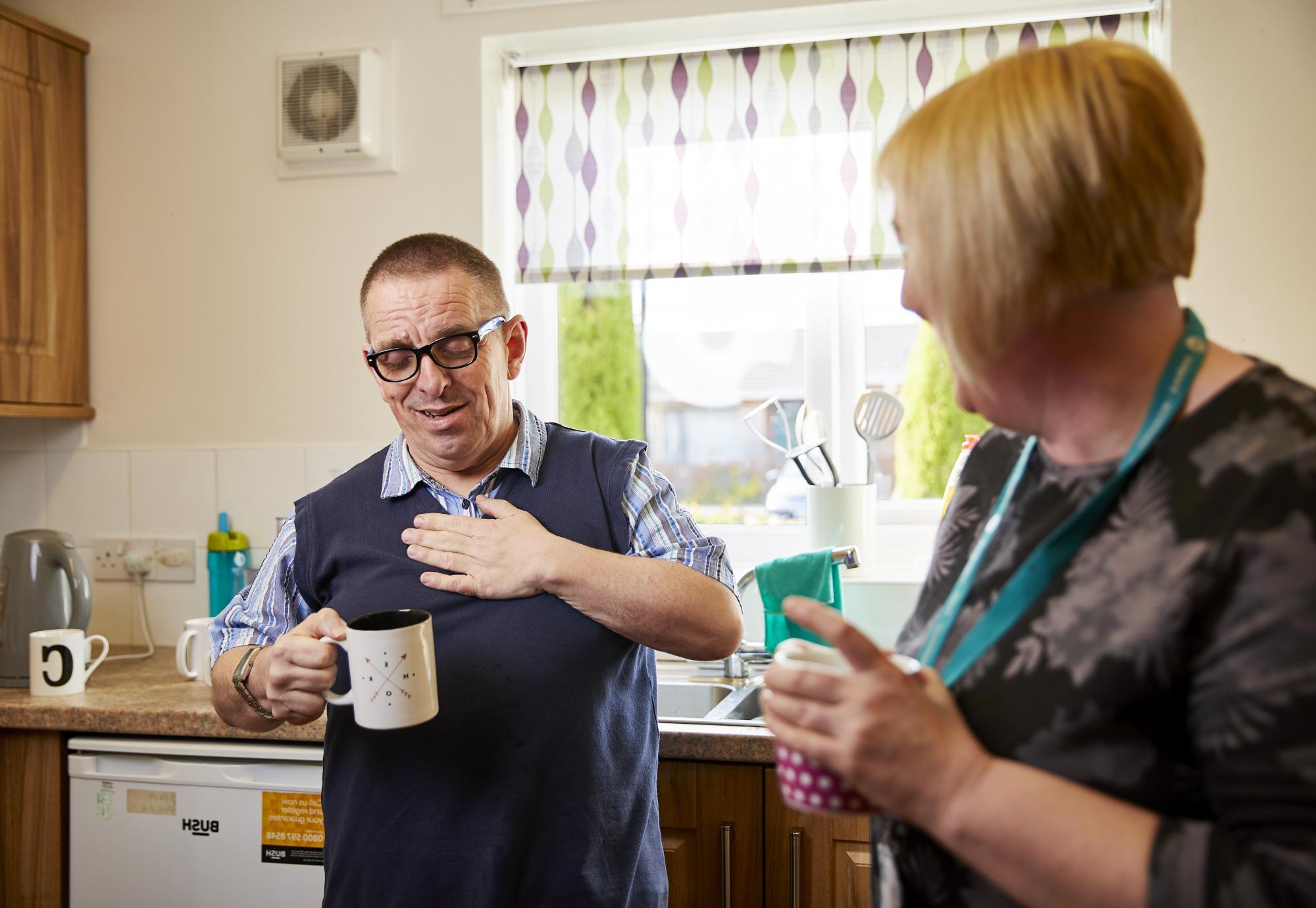From the steps of Downing Street in his first speech as prime minister, Boris Johnson pledged to “fix the crisis in social care once and for all”.
Two years later, at the Conservative Party Conference, he reaffirmed this promise by claiming this government “got Brexit done” and is “going to get social care done”.
While the language may be less eloquent, sight of the long-awaited Health and Social Care White Paper does give me reason to hope.
What I’m firm on is that integration must mean integration. We’ve seen lots of talk about it to date, particularly following the pandemic, but all we’ve seen so far is health workers receive a pay rise, with no uplift in the hourly rate for care workers.
This isn’t to say I don’t believe health workers deserve a pay rise; it’s to say that, in order to deliver effective care, particularly in community settings, we need to be able to first attract and then retain a skilled workforce for what is a highly skilled job.
The pressure of bed capacity is, I’m sure, item number one on every board meeting agenda for every NHS Trust across the UK.
It’s pressure that’s increasing, especially with the massive rise in mental health illness post Covid, as well as the long-standing issue of getting people with learning disabilities and or autism re-integrated into their communities.
If it’s implemented into the health and social care plan in the right way, integration could improve the lives of millions, incentivise and retain a committed workforce, and save the NHS untold time, money and stress.
However, for this to happen, we need to recognise the support of organisations from other sectors – organisations which Government has mostly seen as peripheral to being able to solve major health issues, such as supported housing.
The President of the Association of Directors of Adult Social Services, Stephen Chandler, said recently that Government fails to understand that the social care crisis is ‘not just the 85-year-old who is suffering the impact of old age.
"It’s the woman with multiple sclerosis in her 30s unable to find a carer and being told they will have to be admitted to a care home, or someone with long-term mental illness for whom support would have enabled them to avoid going into NHS treatment.’
One of the greatest continual challenges for the NHS is finding different solutions to increase bed capacity. Supported housing does exactly what it says on the tin; it provides a huge range of housing, support and care, from low to high need, and at Home Group, we even have a whole clinical infrastructure to ensure we can deliver right across that spectrum of care.
For the NHS to tackle bed capacity issues, and to improve care quality, housing and social care can no longer be treated as second-class citizens.
Even within the new Integrated Care Systems (ICSs), designed to form partnerships that improve population health and reduce inequalities, we had to fight to ensure housing was considered as part of them.
But there are signs of change. In the Health and Social Care Command Paper that precedes the White Paper, supported housing was mentioned. But it was only one line. Some may see it as a step forward – what we really need is a giant leap.
As a member of the advisory group for the White Paper, I’ll be impressing upon decision makers the importance of the housing sector in whatever form of health and care integration emerges from all this.
At Home Group, we know how truly integrating housing and health delivers benefits to both people and the NHS. Take our partnership with Greater Manchester Mental Health Trust (GMMH) and their step-down service.
Providing housing and care for up to eight people over a 12-week period, the Trust found that, after its first year in operation, this service alone had the potential to save them around £1.3m per year thanks to improved bed flow and reducing the need for out of area placements.
For those patients admitted and discharged during the first year, 81% were successfully resettled into the community - with over half moving on to live independently.
GMMH themselves said: “Home Group delivered at pace when we were experiencing significant demand and have remained responsive throughout. They are always looking for opportunities to develop and work alongside GMMH to address needs.”
But it’s not just physical services where housing can support health. Our patient discharge model places Home Group colleagues onto the wards for them to form part of the planning process.
At the point of admission, patients receive an initial assessment to identify any specific areas of need and work collaboratively throughout to create their support plan.
An example of this can be found within Tees, Esk and Wear Valleys NHS Foundation Trust, who have seen a dramatic fall in their average impatient stay since the project began.
One patient, who had complex housing needs, had been on the ward for a total of 680 days but was discharged within three weeks of accessing Home Group’s support.
Integrated health and housing has been around for some time in our sector. But some housing associations, like ourselves, have taken it to another level altogether. I’ve worked in supported housing for over 25 years and the complexity of customer we are looking after is greater than ever before.
We’re no longer talking about housing with two or three hours of support a week around the customer. It’s the wider positive impact we have on customers across a whole spectrum of care needs, all of which is made possible by a good housing offer.
Our drive to support the “Transforming Care” programme means we deliver a bespoke housing offer alongside 24-hour care.
We’ve done out bit; investing heavily in recruiting skilled clinical professionals to oversee our practice; upskilling frontline staff; and introducing a new care model, all to meet demand and deliver truly integrated health and housing.
Words from a podium are one thing. But what’s needed now is action. This could be a once in a lifetime opportunity to devise a health care plan that works for everyone – particularly those whose lives are already suffering at the hands of a fractured and failing system.
Rachael Byrne is the Executive Director of New Models of Care at Home Group and has 25 years’ experience in supported housing. She has overall responsibility for more than 600 housing projects nationwide and is passionate about supporting customers at all levels.
To find out more about Home Group’s approach to housing and care, visit www.homegroup.org.uk/care-and-clinical-support/



















